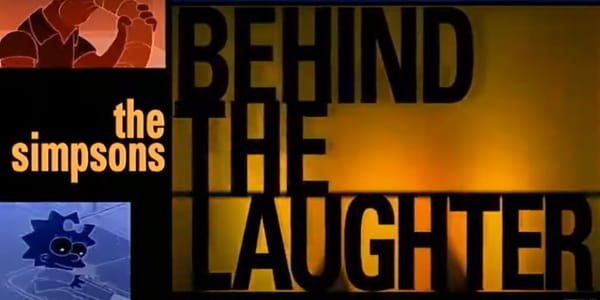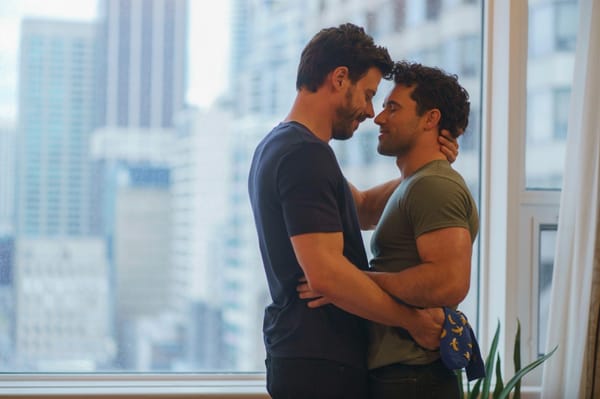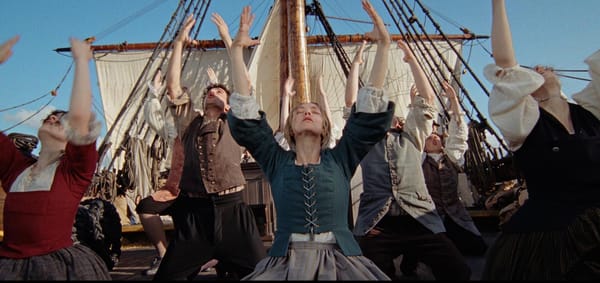Babylon Berlin: "Episode 3" and "Episode 4" (with Liz Shannon Miller)
In which the show's tonal audacity becomes apparent and Emily really hopes a certain two people kiss
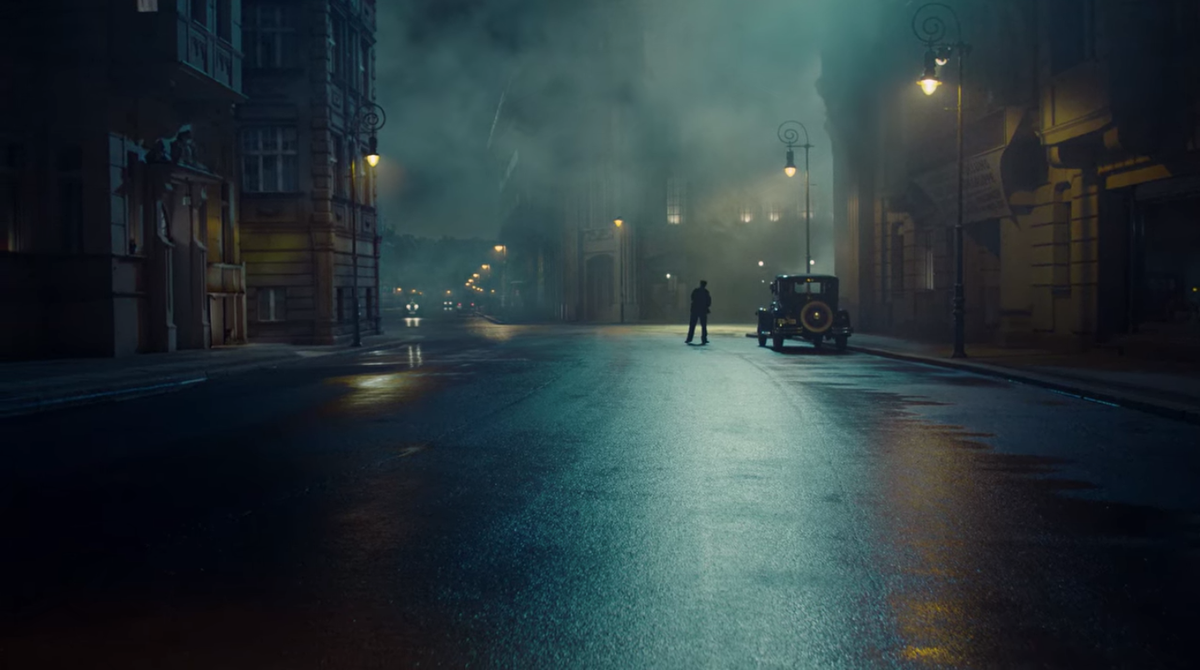
(For the foreseeable future — aka as long as this quarantine lasts — Emily will be watching the critically acclaimed German drama Babylon Berlin, a neo-noir set in 1929 Germany. The series is available on Netflix in the United States. For every installment, she will be joined by a special guest. Today’s guest is esteemed freelance TV critic Liz Shannon Miller. Find Liz on the internet on Twitter and at her website.)

Emily: Liz, I am so happy you drew this particular duo of episodes, because while, yes, both of these episodes are deeply intriguing and advance the plot in all sorts of fascinating ways, and while, yes, the depiction of “Blutmai” (the massacre that happened on May 1, 1929 in Berlin when the police started firing indiscriminately on the crowds at a Communist demonstration) was simultaneously horrifying and exhilarating, I know your affinity for shows with long-simmering romantic tension that slowly increases to a boil.
And boy, I might be misreading things, but it sure feels like Babylon Berlin wants us to see Gereon and Lotte as two people who will be smooching things up at some point. She knows his darkest secrets! He does the absolute bare minimum and treats her like a human being with thoughts and ideas of her own! It’s a match made in Heaven!
We are, of course, both big X-Files fans, and am I ridiculous to read some Mulder and Scully into these two? When they start working in tandem to solve the case in these episodes — chef kissing fingers dot gif!
Liz: Look, as someone who sees echoes of Mulder and Scully in pretty much everything (nothing to be done about it, working with 25 years of engrained habit), I'm not going to be the one to tell you you're wrong here!
But there is something magical about two very good-looking people working together to solve murder crime — it's a set-up that's enabled thousands of episodes of television over the decades. (By the way, a random aside — only recently, while researching an article, did I learn that Sam Waterson's character on Law and Order had NUMEROUS affairs with his ADAs. How did I never notice that before?!?)
Yes, Lotte and Gereon, despite the obvious obstacles of him being married (I'm right about that, right?) and her being a sex worker who's now snared in a trap set by Wolter, are totally pinging me as an endgame romance, and the only thing more exciting than that is Lotte's decision to apply for a job as an inspector! God, I love period dramas where the female lead is like "sexism is dumb, I am going to go after my goals anyway!" I hope Gereon helps her. And then runs away with her to Canada and they live happily ever after!
That said, I feel like the romance was nicely kept simmering, while as you mentioned, there was the massive police action that I feel like I should read up on a little more. Babylon Berlin is a delicious full meal of a TV show, but I confess that pretty much everything having to do with communism feels like the metaphorical vegetables.
Emily: Now, granted, I’m a sucker for this particular period in history. I got really in to reading about the Weimer Republic and its collapse into fascism in late 2016 for some reason, and I love the way that this series is doing a quick tour of some of the most notable events of the period in the guise of a detective show. To me, that’s a good way to have some fun without feeling like we’re eating our veggies. But I can see where you might disagree!
For me, that whole Blutmai sequence was worth it. The steadily mounting horror as Gereon finds himself trapped in the middle of this demonstration, with nowhere to go, was really well done, and it was balanced out by the daring choice to juxtapose the horrors of the massacre with a jazzy score that suggested something more like a car chase in a ‘70s police drama. It’s like the show acknowledging that there is something exciting about being caught in a situation like this, even if it’s leading to something horrible that will hasten the rise of fascism in your country.
Now, if you’re saying you are less invested in the adventures of Svetlana, Alexei, and their various internecine Communist squabbles, sure, yes, I get it. I absolutely dig Svetlana’s attempts to stay alive by spinning an elaborate web of lies, but Alexei can be kind of a bore. But here’s the thing: The two of them are part of a plot that involves shipping a train full of gold to Trotsky in Istanbul. Svetlana wants to foil it; Alexei wants to get that gold to his boy. Conceptually, sure, maybe this is a bit dry compared to the other side of the show, but can I repeat the phrase train full of gold? It’s a big enough Macguffin that I’m in to it.
What’s making you tune out of the Communism stuff? How dare you say anything mean about the half of the show that contains Dr. Volcker, my new favorite character?! And what do we make of Lotte’s old friend, Greta, who sure seems like she might be an important character but got off to a very odd start?
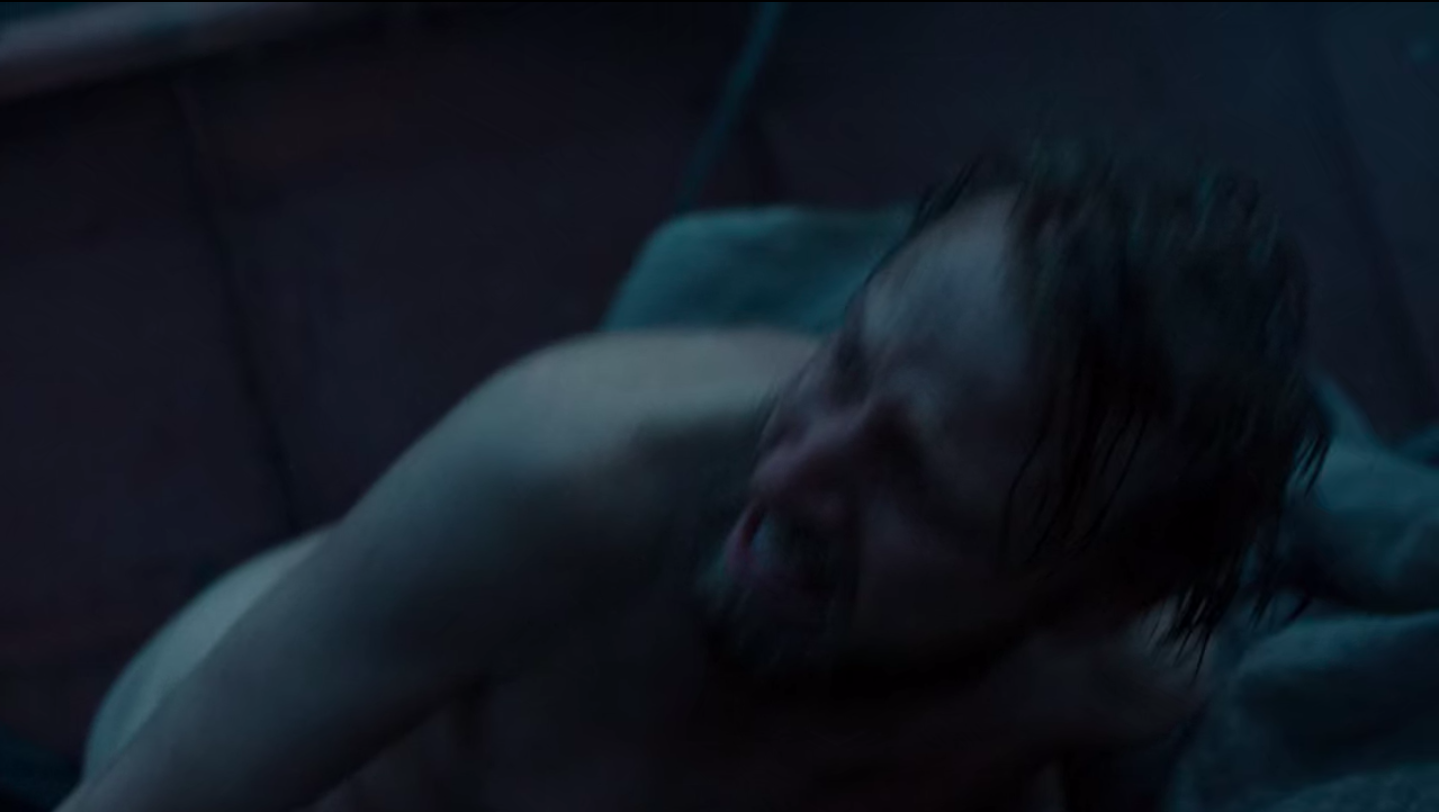
Liz: First off, let me be clear that on a filmmaking level, I am consistently blown away by how damn good this show is — Tom Tykwer has always been a maestro, especially when it comes to blending music with action, and between he and his collaborators Henk Handloegten and Achim von Borries, the Blutmai sequence is as good as anything winning Emmys these days. And also, Dr. Volcker is the very best and long may her reign over our hearts last.
The specific part of the communist subplot that is failing to grab me is basically the off-screen battle between Stalin and Trotsky, which is entirely my fault for not having an immediate knowledge of the context involved. I like all of the characters here, but it's the one big historical element that isn't given a lot of clear explanation, and that impacts my ability to engage. I get it's a big deal, but I don't understand exactly why it's a big deal.
That said, who doesn't appreciate a secret train car filled with gold bars! I'd normally say "communists" as a joke, but...
Also, I too am very curious about the introduction of Greta, who feels like a real "oh, honey" type set on a path towards doom. What makes you feel like her introduction was odd?
Emily: And now, an extremely brief, high-level history lesson with Emily (who will probably get some things wrong)!
So, there are a bunch of figures who are important in the early days of the Soviet Union, but for purposes of our story, there are three who matter: Lenin, Trotsky, and Stalin. While Lenin was alive and ruling, there was an uneasy peace between Trotsky and Stalin. The former was more or less a Communism true believer (i.e., he thought the single most important thing was spreading the Communist revolution in other countries, not in bolstering the Soviet Union in and of itself). The latter was a Communist but far more interested in making the Soviet Union as strong as it could possibly be. Also, he did some pretty bad things! Dunno if you’ve heard about that!
So Lenin dies, and it seems like Trotsky will probably take over for him, since he’s nominally the number two in the whole government. But Stalin conspires against him with a few other members of the government to sideline Trotsky and elevate Stalin. Stalin’s plot is successful, he ascends to the big chair, and Trotsky goes into exile. He is assassinated by the Soviets in 1940 in Mexico. And you can make a real argument that Stalin pushing aside Trotsky is a big reason why Communism came to be seen as a failed economic model by many in the 20th century. Stalin… not a great guy! Kind of in it to bolster himself! Didn’t so much care about the nuts and bolts of Marxism!
Like if you grew up in the US in the ‘80s, at the tail end of the Cold War, then the reasons you were likely given for Communism being bad was that Communist countries were dictatorships where there was no freedom of speech or religion or etc. and people were put in prison or worse for speaking out against the state. And that was true, insofar as 20th century Communist countries go (not like it’s not true of capitalist democracies either, let’s note), but it’s not like Communism de facto leads to oppressive dictatorships. Stalin was sort of the guy who made all of that happen. Good for him?? Definitely bad for Trotsky.
But in 1929, this is still recent history! Trotsky is still alive, and there are factions still loyal to him, factions that include the group Alexei was working with before they were gunned down. Stalin is so concerned about him as this bogeyman that he has him written out of the history books entirely. (You may recognize the broad strokes of this basic plot from George Orwell’s Animal Farm, where something very similar happens with Snowball the pig.) So that’s the backdrop a lot of this takes place against — diehard Trotskyists trying to sideline Stalin but fighting a war they probably know they’re losing inch by inch.
The irony here, of course, is that Germany itself will prime the rise of Communism in eastern Europe, just not in the way anybody would imagine. The Nazis’ conquering of most of Europe, followed by the bitter standoff with the Soviet Union that turned into the Soviets slowly, bitterly pushing the Germans back resulted in a bunch of countries falling under Soviet rule. It’s a bizarre situation that might have pleased (because so much Communism!) and horrified (because so much Stalinism!) Trotsky simultaneously — except he was dead.
Now for German audiences of Babylon Berlin, all of this is likely known at least a little bit. After all, this story is set in a city that would someday be literally divided in half by these sorts of political questions, and plenty of people still living today remember the Berlin Wall coming down. But in exporting the show to a global audience — I get why the distinctions between different forms of Soviet Communism don’t entirely make sense.
As for Greta: I think what is fascinating to me about her is the way in which she would normally be the protagonist of our story, but she’s just not. It’s not hard to imagine a version of this series where Greta comes to town and we follow her as she meets her old chum, then heads out to the club with her. It’s only then that — gasp! — she realizes her old friend has become a sex worker, and she bails on the whole affair.
That’s not what happens! Lotte is our protagonist, so Greta is just this odd side character, except for all of the ways in which her inclusion in this episode sure seems to suggest she’s being set up for more. It’s a weird way to introduce her, because the story logic suggests we should see this action through her eyes (she’s new, she has the most to lose, etc.), but we see her almost entirely through Lotte’s eyes. Obviously, I need to see more of her to be sure, but it felt to me like a slightly strained introduction.
I want to call back to your love of Tykwer and company’s work here, because this is one seriously gorgeous show. Did any images from these episodes stick with you?
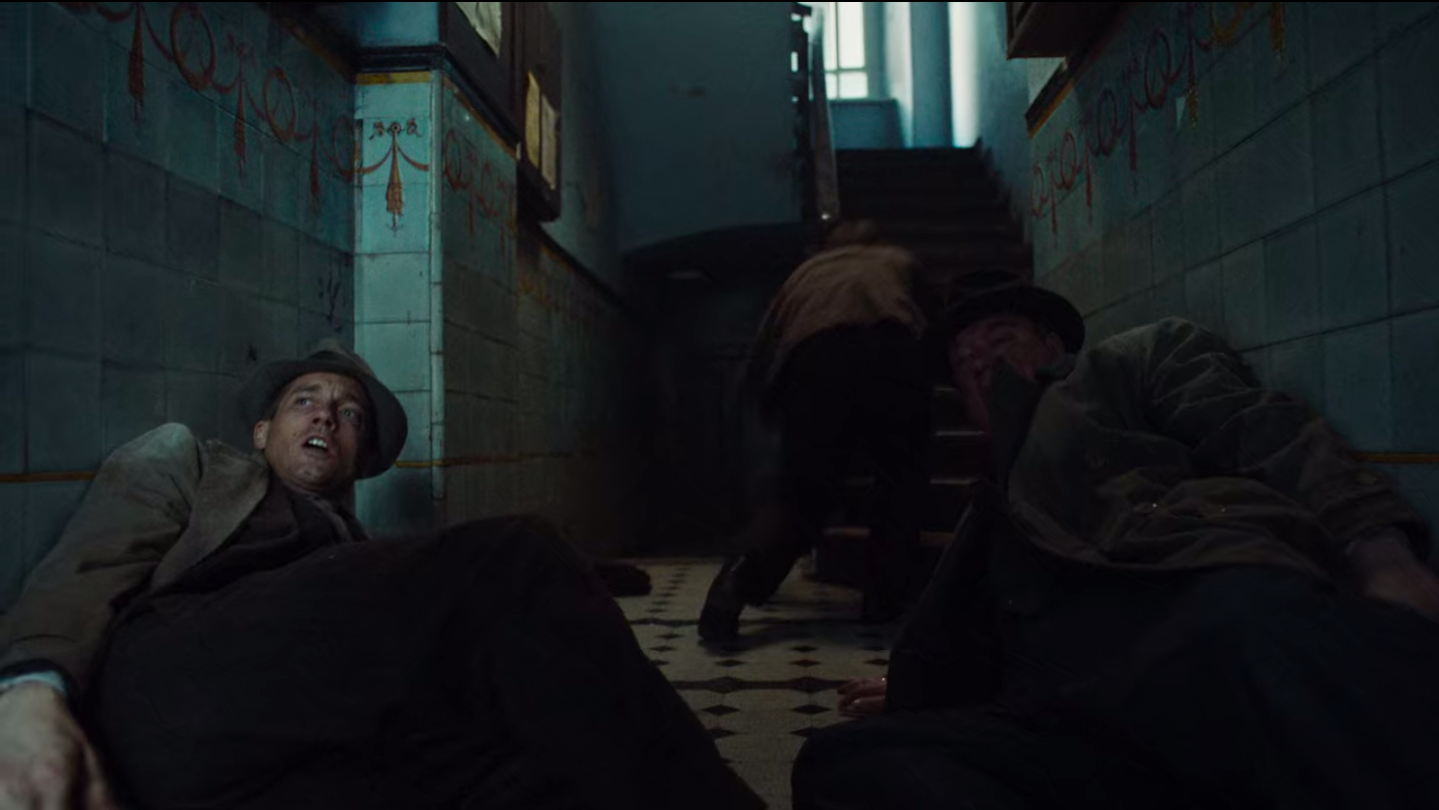
Liz: I deeply appreciate the history lesson, thank you!
While I was certainly aware of Stalin not being a great guy and Russian politics being quite screwed up and vicious — thank you, Armando Ianucci, for your fascinating film The Death of Stalin — it is interesting to consider the alternate universe where Trotsky rose to power and the less awful side of communism got more of a shot. (Why on Earth would I be thinking right now about styles of government that might prioritize the well-being of the worker? So strange.)
You make a great point about Greta, one which didn't necessarily occur to me because her introduction came in “Episode 4,” rather than the first episode. (By the way, have you ever seen/revisited the original CSI pilot? There is a BRILLIANT twist on the "introduce the world of the show by way of an ingenue" concept there.) I am definitely excited to see what happens next with Greta, especially because I still feel like I'm sorting out where this show lands when it comes to its attitude towards sex work, and her reaction to learning what's up with Lotte will play an important role in that.
These two episodes are kinetic and raw in the best ways, while never showy: Weirdly, the first shot that came to mind when you asked which shots I liked is naked Wolter in the basement of the club — there was just something about the way he was staged and framed that made it clear how much power he held in that scene, without a stitch of clothing on. (Full credit to Peter Kurth's performance as well, of course.)
I will also use this as an opportunity to flat-out SCREAM about my obsession with "Zu Asche, Zu Staub," the big musical number from “Episode 2.” When the show first premiered, dear friend to man and beast Steve Greene was the one to mention to me that "Hey, something amazing happens in ‘Episode 2,’" which was frankly why I even started watching the show in the first place. While I didn't end up watching past the early episodes of the season, I have gone back to rewatch this clip probably dozens of times in the years since.
The explanation for why I only watched a few episodes from the first season, despite being pretty stunned by the quality of its execution, is embarrassingly this: of course I watch a ton of TV and film, but if I'm not on assignment I'm often multi-tasking — and that is at times impossible with foreign-language programming, especially since I'm also allergic to dubbing (have yet to ever experience a really good one). I know this means Bong Joon-ho thinks less of me, and believe me it breaks my heart, but I feel like it's an issue I'm not alone in dealing with?
Emily: I don’t recommend the Babylon Berlin English language dub. It is truly awful.
But I know what you mean. I’ve started watching more foreign language TV in the past year or so, as my need to keep up with everything diminished and I could just focus on what I was interested in. But even then, I feel like such an ugly American for how little of it I actually check out. Like have you heard about this anime thing? Seems good! (And, as stated on Twitter, once I’m through Babylon Berlin, I plan to cover Cowboy Bebop. Set your Tivos!)
I was not as enthralled by these two episodes as I was the first two, but that’s probably a good thing. They do the necessary work of building out the show’s world and making sure that we feel like we know what’s going on and where everybody is in relation to each other, which gives sequences like the May 1 massacre at least some of their power. And by bringing Gereon and Lotte closer together, the show is surely moving toward its best self, which involves the two of them kissing.
That’s about all for these two episodes! Liz, do you have anything you want to plug for the readers?
Liz:, Well, my writing in general seems to arrive almost at random in various locations these days, but I consider myself to be very fortunate right now, because I currently have two weekly recapping gigs: Dispatches From Elsewhere for The AV Club and Westworld for Vulture. Steady work in a time like this is a real blessing! And you also can find me on Twitter. I feel like I'm pretty fun on Twitter.
Emily, thank you so much for letting me gab about this show, and more importantly inspiring me to dig back into it! It really is just sumptuous at times.
Emily: Thank you so much for joining me, Liz! And I can’t wait for whatever this show has coming next, so long as it doesn’t involve anybody running over my hands with a car.
Friday: “Episode 5” and “Episode 6” arrive, and another special guest will as well!

